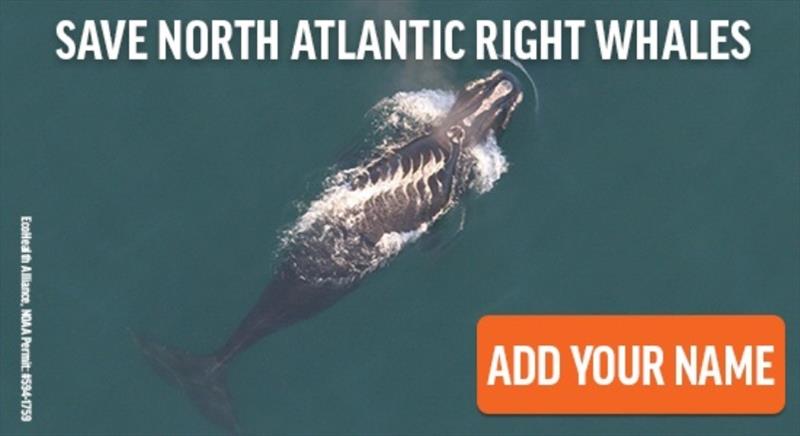
Speeding vessels exposed, threatening North Atlantic right whales. Can you help?
by Sailors for the Sea 24 Jul 2021 19:44 UTC

Save North Atlantic right whales © Sailors for the Sea
Critically endangered North Atlantic right whales need your voice today. Vessels are speeding, whales are dying, and there is not enough accountability.
A new Oceana report found that most vessels are exceeding speed limits in areas designated to protect critically endangered North Atlantic right whales along the U.S. Atlantic Coast. Studies have found that the speed of a vessel is a major factor of death in vessel-related collisions with North Atlantic right whales: at high-speeds, they cannot maneuver to avoid these whales. And North Atlantic right whales swim too slowly to be able to move out of the way.
With only about 360 remaining, we must protect North Atlantic right whales from deadly vessel strikes, before it is too late!
YOU can help today. We can protect North Atlantic right whales and prevent their extinction, but it will require bold stewardship from our government to take the necessary action.
Tell the National Oceanic and Atmospheric Administration (NOAA) to expand and enforce required speed restrictions in areas where North Atlantic right whales are known to frequent - Vessels can't keep killing these critically endangered whales...
Oceana analyzed vessel speeds from 2017 to 2020 in speed zones established by NOAA along the East Coast and found noncompliance was as high as almost 90% in mandatory speed zones, and noncooperation was as high as almost 85% in voluntary areas. Studies have found that slowing vessel speeds to 10 knots reduces a North Atlantic right whale's risk of death from vessel strikes by between 80% to 90%.
By failing to slow down, vessels are choosing to drive these whales toward extinction.
If NOAA is serious about its mandate to save North Atlantic right whales from extinction, speed zones must be designated in areas where whales currently are, and they must be enforced. Until speed zone rules are mandatory and adequately enforced, North Atlantic right whales will continue to die.
Use your voice to tell NOAA to immediately revise vessel speed regulations to help save North Atlantic right whales from horrible, avoidable deaths.
Oceana is campaigning to save these whales from extinction, but we're only as powerful as the people like you who stand with us.
For the oceans,
Mariah Pfleger
Marine Scientist
Oceana